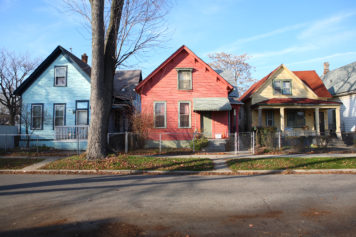A new study counters the narrative of the American Dream and home ownership, particularly as it applies to Blacks.
A new Johns Hopkins University study found that while some homebuyers gained, and others lost ground in the shaky home buying market of the 2000s, Black first-time homebuyers typically went underwater. The study, authored by public policy professor Sandra J. Newman and researcher C. Scott Holupka and published in the journal Real Estate Economics, revealed that race was a primary factor in determining which homebuyers of low and moderate income made money during the last decade.
“They say that in real estate timing is everything but blacks had a loss across the decade — even when their purchase time was impeccable,” Newman said. “They would have done better if they’d stayed renters.”
During the catastrophic economic downturn known as the Great Recession, Black homebuyers lost substantially more than their white counterparts. Further, in the boom years, Blacks lost 47 percent of their wealth, as whites experienced a 50 percent boost to their wealth.
The key to the study, at least for white buyers, was timing, or when they bought their home. However, timing was not an issue for Blacks, but rather location–typically Black neighborhoods, with lower housing prices and appreciation and sinking rates of home ownership. For the study, the researchers analyzed the Panel Study of Income Dynamics, with a focus on first time home buyers and how buying a home impacted the net worth of renters at the onset of the 2001 recession, in 2003 when the market was gaining steam, the height of the boom in 2005 and the start of the 2007 recession. First-time home buyers make up 40 percent of those purchasing a home, and more than 60 percent of them are of low to moderate income.
The racial disparities in the study were sobering. During the Great Recession of 2007 to 2009, new white homebuyers’ net worth dipped 33 percent, and new Black homebuyers lost 43 percent of their wealth. During the boom years from 2005 to 2007, white first-time buyers experienced a net worth gain of 50 percent or $24,000, but Blacks lost 47 percent, or $16,911. For white buyers who bought their homes in 2007, it would have taken three to 32 years to regain their money. Meanwhile, it would take Blacks twice as long, seven years at best, and as much as 74 years under weak economic conditions.
“We had to convince ourselves that during one of the hottest housing markets ever, our numbers were showing black buyers still experienced losses,” Holupka said. “It was sort of stunning.”
Further, as Gillian B. White of the Atlantic noted, white renters would have gained $6,600 between 2005 and 2011, which would have been less than they would have earned as homeowners. However, Black families who rented would have shifted from negative to positive net worth—to $1,300 between 2005 and 2007, and to $2,700 by 2011.
According to the authors, predatory loans, location and how long families held on to their homes explain the disparities. Other studies are consistent with these findings. In 2014, a Pew Research study found that the racial wealth gap widened since the end of the Great Recession, with white households having eight times the wealth of Blacks in 2010, but 13 times more in 2013. Further, the gap between whites and Blacks and whites and Hispanics has widened since 2007.
A recent study conducted by Demos called The Racial Wealth Gap: Why Policy Matters revealed that in 2011, the median white household had $111,146 in wealth, compared to $7,113 for a Black household and $8,348 for a Latino household. The report cites a number of contributing circumstances, such as redlining in Black neighborhoods, discriminatory lending and subprime mortgages that targeted Black and Latino families. Other factors include the higher debt burdens Blacks must assume to attend college, employment discrimination, and residential segregation, which creates underfunded, low quality schools.
As Jamelle Bouie wrote in Slate in 2014, the Great Recession obliterated Black wealth, but the challenges of Black home ownership are protracted, with Black families more likely to lose their homes due to such problems as housing discrimination, loss of jobs due to public sector downsizing, and high unemployment.
Moreover, in cities such as Baltimore, billionaire investors capitalize on the misfortunes of poor, Black homeowners by purchasing liens on unpaid debts for delinquent utility bills, charging high interest, and taking their homes when these people are unable to pay.



